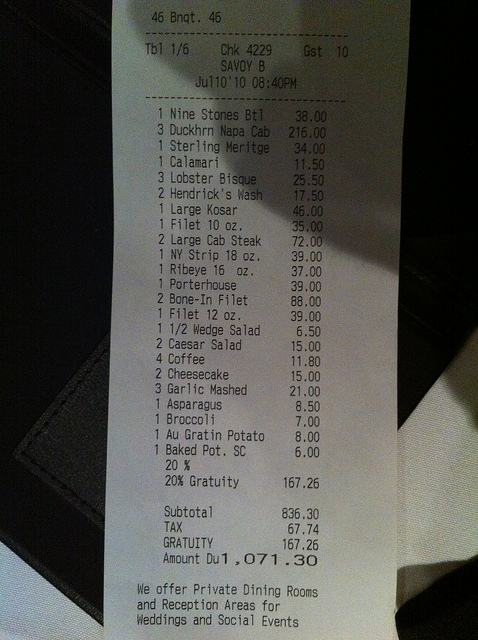How To Offer To Pay For Something
Let's say you're at a restaurant with some friends and you'd like to offer to pay for the meal. What would you say to everyone at the table when the check comes?
If you say "I'll pay for this," or "I'll buy this," you'll sound too direct. Talking about money and payments can be uncomfortable, so we often avoid words like pay and buy in these situations.
What would be more appropriate is saying something like "Let me get this" while reaching for the check. This expression is far more polite.
Here are some common expressions you can use the next time you want to offer to pay for something.
I got it/I got this
We often use this expression at the time of payment. For example, if you are out to dinner with some friends and the check comes, you might take the check and say "I got it," or "I got this." Or, if you're buying something at a store, you might use one of these expressions at the cash register as a way of indicating that you'd like to pay for the items.
We also use other variations of this expression such as I'll get this , I'll get this one , or Let me get this .
Note that we only use these expressions at the time of payment. We wouldn't say, for example, "Do you want anything from Starbucks? I got it." For a situation like this, we need another expression.

It's on me
We can use "It's on me" at the time of payment, or we can use the expression beforehand to extend an offer or invitation.
Some examples:
"No, please. Put your wallet away. It's on me." (at the time of payment)
"Would you like anything from Starbucks? It's on me."(to extend an offer)
"Do you want to go get some coffee? It's on me." (to extend an invitation)
A variation of this expression is "It's on the house." This expression is used by an employee of a restaurant, bar, or other establishment as a way of communicating that something is free of charge.
"Your next drink's on the house. Thanks for being such a loyal customer."
I'm buying
We often avoid words like pay and buy when talking about payments, but this expression is an exception. We commonly say "I'm buying" to communicate that we would like to pay for something we are offering.
Examples:
"Do you want to get some coffee? I'm buying."
"Would anyone like to order pizza for lunch? I'm buying."
(It's) my treat
We often use this expression to extend an offer.
Examples:
"Let's go get some ice cream. (It's) my treat."
"Dinner tonight? My treat."
Here are some movie scenes with the expression. Note that "It's" is optional and often omitted.
Please, I insist
If the person you are with tries to decline your offer to pay for something, you can assert yourself by saying "Please, I insist." Oftentimes by using this expression the other person will relent and let you pay.
An example:
You: (check arrives) "Let me get this one."
Your friend: "No, I got it."
You: "Please, I insist. You can get the next one."
Your friend: "Okay, thanks. I appreciate it."
.
The next time you'd like to offer to pay for something, use one of these natural-sounding expressions.
Also, as general advice, always be on the lookout for natural-sounding expressions that native speakers use in particular situations. Don't rely on direct translations from your native language as these expressions are often inappropriate in English.
Hi, I'm Brad. I've spent the last seven years teaching English and creating websites for English learners and teachers. I recently moved from Costa Rica to Orlando, Florida, where I teach intensive English classes at a state college. If you'd like to contact me, I can be reached via email at bradfordcjones@gmail.com.
View all of Bradford Jones's posts.
How To Offer To Pay For Something
Source: https://getmorevocab.com/expressions-offering-pay-for-something/
Posted by: norrisrues1974.blogspot.com

0 Response to "How To Offer To Pay For Something"
Post a Comment